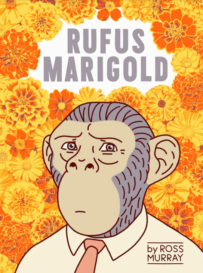eReaders: Misplaced Sentimentality
We don’t like change. Despite the advancements and technological progression, the response to eReaders has been lukewarm. I have to admit that I myself am among the unreformed, and this has led me to question why I hang on to a sentimentality that I certainly never felt when I parted with my camera film, CDs or VHS. What is it about books that we are so afraid of losing: the backache from carrying them, the paper cuts, the smell? After all, it is not the words; the actual life affirming, earth-shattering literature that is changing- just the format.
The debate that surrounds eBooks has become muddied by misplaced sentimentality. It is not literature that is changing but merely its form. Does the way in which we digest literature change its meaning? Digitalisation, good or bad, is an inevitability of modernity. Just compare how we listen to music, record our memories or do our grocery shopping today to how we did it just twenty years ago. In the instant gratification generation, it is unsurprising a device such as the new Kindle, which allows a reader to choose, buy and own a new book in less than 60 seconds, has been widely successful. Earlier this year, in February 2011, the New York Times added an eBook section to its best seller lists: the eBook is clearly here to stay.
So stop snivelling about missing the smell of books, because let’s be honest, who actually enjoyed the musty smell of someone else’s dirty hands or glue and paper? It is not books themselves that we fear losing but their reverence in society. Surely it is irrational to suggest that the words we read are devalued by where they appear.
If we embrace the technology and the opportunity it presents to reach a wider market, perhaps eBooks have the power to encourage children to read again. During the summer riots, one of the only shops on Clapham Junction not to be looted was a Bookshop. The message is loud and clear: kids don’t want books. Since 52% of children are already using smart phones, video iPods, iPads or similar devices (according to eSchool news), eReaders could prove to be the catalyst literature needs.
EBooks are simply a change in how we read, not necessarily what we read. The words are still the same; but an eReader is just a third of the weight, has made reading trendy and automatically saves your page. Will paper books die out? Quite possibly, but how mad would it seem if you had to rewind a film to watch it again now? Perhaps in a few years time a similar absurdity will surround bookmarks.
Annie Godfrey
Tags: ag, ebooks, ebooks vs paper books, ereader, ereaders, kindle, kindle books














